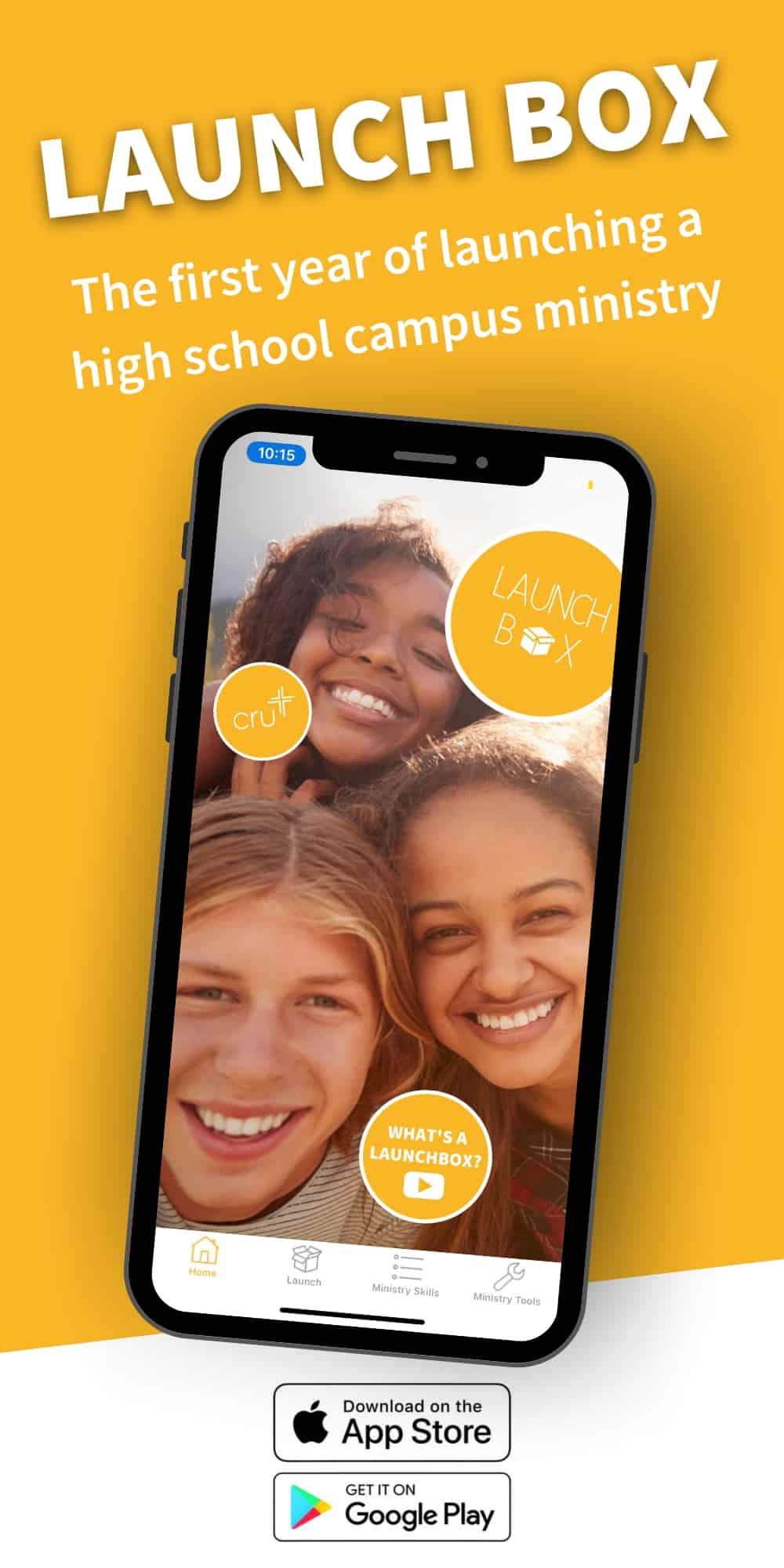Leading a small group can be exciting and challenging. Small groups can help students deepen their relationship with Christ, experience life change, and have an outward impact on their friends. But it is also challenging to depend on God each week as you lead discussions and work to create a great small group environment. Some students will transform into spiritual giants, others will let you down.
We want your small group experience to be the best it can be so we put together a few principles to help you lead a life-changing small group for your students.
Lead from a Personal Dependence on God
Your own walk with the Lord will be the foundation for your leadership with your small group. As you lead by example and involve your students in ministry, you are developing leaders for your movement. If you depend on your own abilities it will be seen by the students in your group. Likewise, they will see when you depend on God in everything you do.
“Be imitators of me, as I am of Christ.”
– 1 Corinthians 11:1
Your Personal Study Preparation Is Essential
There are some amazing resources out there. Thrive Studies is one of them. Thrive Studies come with a leaders guide, complete with step-by-step instructions on how to begin each study, how to explore the verses, and how to apply the truth in practical ways. But amazing resources cannot overcome a lack of preparation.
Be sure to work through each lesson prior to leading your small group. Read and meditate on the referenced scripture passages. Imagine your students answering the questions. Are there some questions you should not ask? Are there some of your own you would like to add? Every group is different and only you know how to best lead your group. Your advanced preparation is one way you can show love to your students as your familiarity with the material will allow them to have a more meaningful group experience.
Remember, the lesson is not just for your students, it is also for you. Ask the Lord how it applies to your own relationship with Him. Often a leader will find the lesson is timely for them. No matter how much we know or experience with God, there is always room to grow. Look for what God might want to say to you through the study.
No matter how much we know or experience with God, there is always room to grow.
Lead Your Group by Creating a Learning Environment

While leading a small group may feel daunting, your role as a small group leader is more of a facilitator than a teacher. Students will not learn simply because you have taught them the truth.
Learning Involves Active Engagement
Studies show that we only retain 20% of what we hear in a presentation, but when we are actively involved in the process of learning, our retention skyrockets to 90%. For example, imagine yourself in a science class teaching students about mining for gold. You might give them an instruction booklet and perhaps show a picture or two. But what if you could take your students to an actual mine and let them experience digging for gold? Their five senses would come alive, and they would be able to see and touch the damp stones, hear the slow drip of water, smell the moisture and dust, and taste the mineral powder in the air. Once they discover gold for themselves, they would be motivated to keep digging for more.
Similarly, knowing ABOUT God is a far cry from being in a relationship with Him. You want students’ five senses to come to life as they dig into the character of God and into His Word to discover nuggets of truth for themselves about how to live the life God designed for them. Your time together will actually become a time of discovery.
Learning Involves Asking Questions
Asking questions will engage your students and will help them evaluate and personalize where they are in their walk with God. At the beginning of your study each week, briefly highlight topics you have already covered. Then launch into your time with an activity or discussion question that gets them thinking about the central truth of your study, something that will relate to their world. Again, there are great suggestions in the Thrive Studies leaders guide for you. Each Thrive study comes with review questions to refresh their memories of past studies and activities or discussion questions to kick off the lesson.
Here are some helpful questions to ask your students:
- What do you think is the main point of this story?
- Are there any words you do not understand?
- What does this story teach us about God and His plan for us?
- What does this story teach us about ourselves?
Learning Involves Discovering Where God Is Leading
Students regularly need to locate the “you are here” red dot in their personal walk with God. As they study scripture, you want them to discover where God is leading them. To assess where they are on God’s path and learn how to follow God’s leading, ask questions! Here are some examples of questions to help them process:
- In light of these verses, where am I in my walk with God?
- How does this passage apply to my life right now?
- Is there anything standing in the way of me walking this path with God right now?
Create an Environment of Trust and Safety for Your Group
Students will be at different points in their relationship with God. You may have a student who has never seen a Bible and another student who has memorized parts of the Bible. You can still provide great encouragement and camaraderie along the way as you foster an environment of trust and safety.
Lead Each Person to Take Their Next Step With God
Help your students know the Christian life is lived one step at a time, one decision at a time. The next step is always the most important one. To help them apply what they have learned, you may want to close in prayer and have them ask God a few questions like the following:
- What is my next step?
- How does God want me to respond and apply these truths right now in my life, my relationships, my decisions?
Depending on the group, you may want to ask if anyone would share what the next step might be for them and pray for one another in closing.
Repeat the Process
Lead your small group to experience these things again and again and you will start to see students deepen their relationship with Christ. Leading students to these questions every time you meet, “Where am I, where is God leading me, how do I get there, what are obstacles in my path, and what is my next step?” As you lead your small group, create an environment to build a great internal process they can use in their personal times alone with God. God has much in store for each student and the ministry on your campus. Enjoy this great adventure and time of discovery together.








